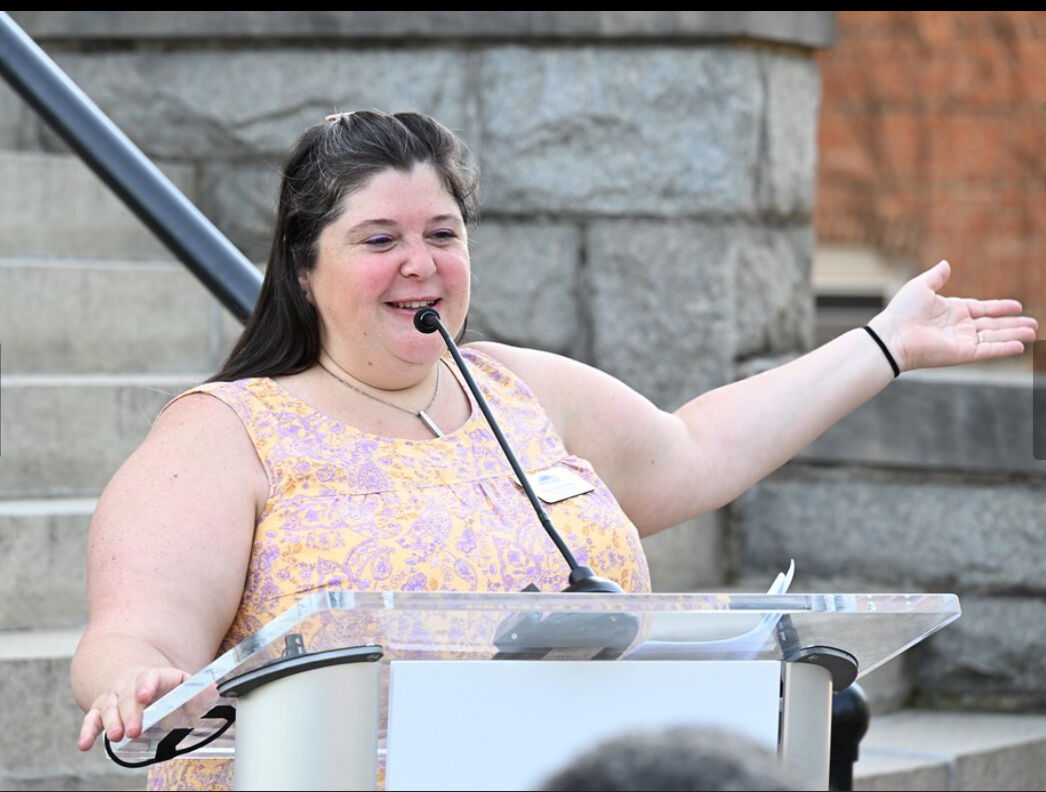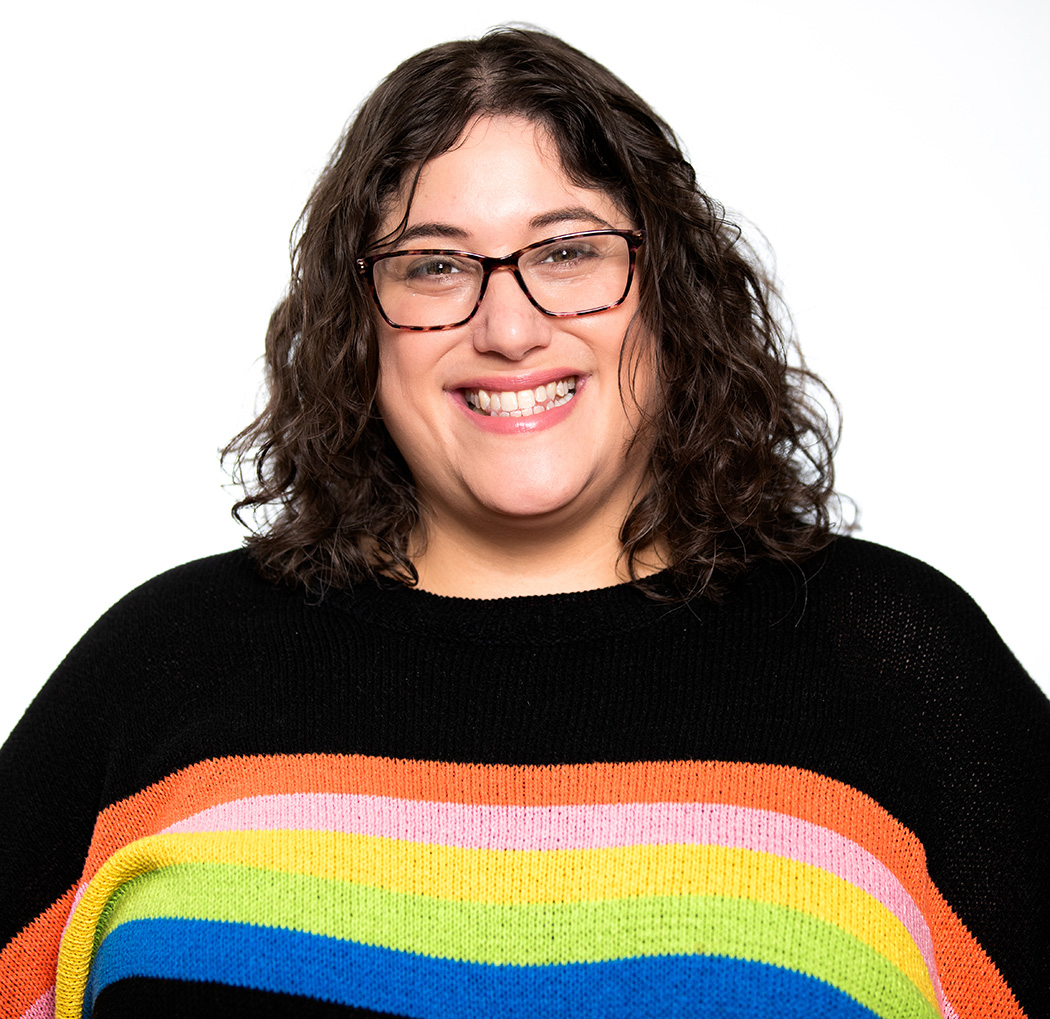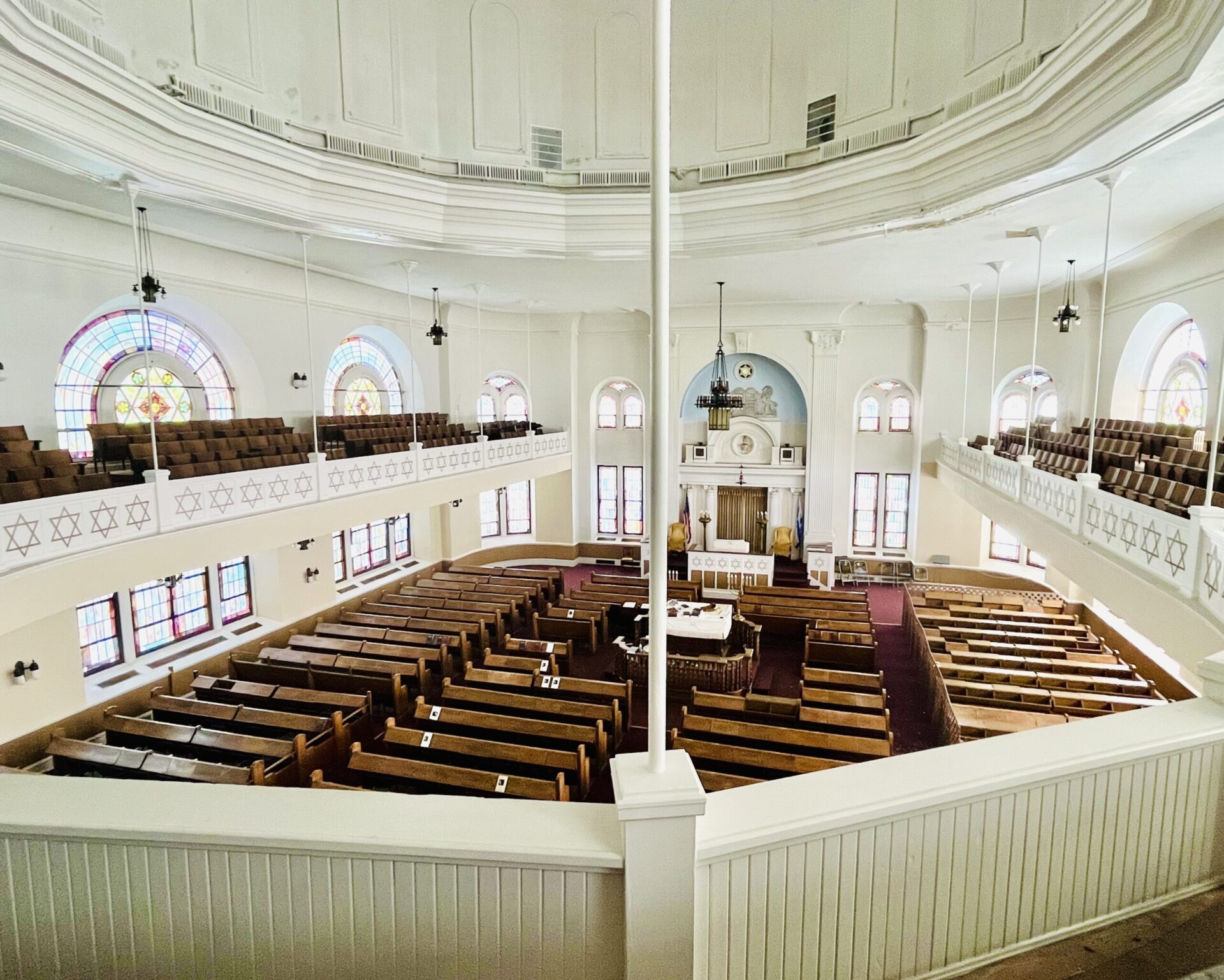Rabbi Jessy Dressin Makes ‘Space’ for Building Community
An article by Hugo Kugiya | August 2024 |The Jewish Times

Rabbi Jessy Dressin’s journey to the rabbinate was a bit of an unconventional one. By the time she attended University of Maryland, College Park for her undergraduate, she already knew that she wanted to be a rabbi — but she found that she wasn’t looking for a position as a rabbi at a synagogue.
Instead, she was more interested in more informal community spaces, such as Jewish summer camps, JCCs and youth groups — places not focused solely on worship or services, but on Jewish learning and building community and friendship.
“I didn’t ever see myself as a rabbi in a congregation. I didn’t know if I personally wanted to be the model of someone else’s religious standard,” Dressin said. “But I was interested in the informal spaces where Jewish learning and community-building happened. I felt that I was deeply committed to that.”
She got her start in the Jewish world attending a JCC day camp, which led her to become so invested in Judaism that her parents, who were not especially observant beforehand, joined a Reform synagogue in her stead.
Now 44 and living in Pikesville, Dressin — often known simply as Rabbi Jessy — is the executive director and founding rabbi of Third Space at Shaarei Tfiloh, the non-denominational, intersectional community center housed in the historic synagogue. Third Space had its soft opening in June, with programming slated through the fall.
Born and raised in Northern Virginia, Dressin developed her leadership skills at the Jewish Federation of the Greater East Bay in the San Francisco Bay Area, which is what led her to become a communal professional rather than a congregational rabbi. She spent a few years working under famed Judaica artist Gary Rosenthal, who served as a mentor to her. She was ordained in 2012 and officially moved to Baltimore shortly after.
“I always knew, long before I went to rabbinical school, that when I finished, I wanted to be in Baltimore and work with its Jewish community,” Dressin noted. “My people are here, and my sense of calling or desire to be a rabbi and a teacher of Jewish tradition was really about the communities that I was already a part of, and the people that I already lived my life alongside.”
Dressin notes that one of her inspirations is the strategy of Chabad and its emphasis on undergoing Jewish journeys one step at a time and meeting people where they’re at, though she jokes that she’s “a lot less bearded” than most Chabad rabbis.
She first started her work in Baltimore by founding Charm City Tribe, a JCC initiative to engage young adults in their 20s and 30s. The group ceased operations in 2019, when Dressin became the senior director of Jewish education at Repair the World and her colleague, former program manager Jake Max, took a position at Hillel International.
Much of Dressin’s approach as a rabbi is informed by a commitment to social justice. While she doesn’t place its importance over that of Jewish learning or practice, she’s very invested in activism from a Jewish lens.

“I grew up 17 miles from Washington, D.C., and I had no idea that everyone didn’t lobby on Capitol Hill with their Jewish youth group advocating for things they cared about through a lens of Jewish values,” she said. “My Jewish upbringing was in an ecosystem where a lot of people were involved in politics or journalism or think tanks.”
It was this commitment that led to the creation of Third Space at Shaarei Tfiloh. Dressin recalled that the idea first came about in summer 2022, shortly after the Supreme Court overturned Roe v. Wade. Dressin gathered three of her female colleagues and hosted what she called a “havdalah rage ritual.”
Shortly after, Jon Cordish, who had attended the havdalah and is the principal and director of finance at The Cordish Companies real estate development firm, contacted her about potentially using the historic Shaarei Tfiloh synagogue as an educational center. His family had been stewarding the building for four generations, and it had sat unoccupied for years.
Dressin credits him as being part of Third Space’s creation.
“I took him to Sixth & I in D.C., which we’re not trying to replicate, but I like to say that we’re a cousin of,” she said. “We spent a lot of time talking about what it would look like to reactivate Shaarei Tfiloh as a Jewish space that could be value additive in the neighborhood where it’s sat for a century in addition to being a place of added value in the Baltimore Jewish ecosystem.”
Currently, Third Space is in the midst of a three-year proof-of-concept plan between Dressin and Cordish, with the potential to become a permanent fixture depending on those first three years. The building now functions as a community center, hosting both Jewish and non-Jewish cultural events and plenty of volunteer opportunities, such as tending to its community garden.
Dressin has high hopes for Third Space’s future.
“This new chapter in this building will stand on the shoulders of what has been a staple of Baltimore’s Jewish community for the last 100 years,” she said.

